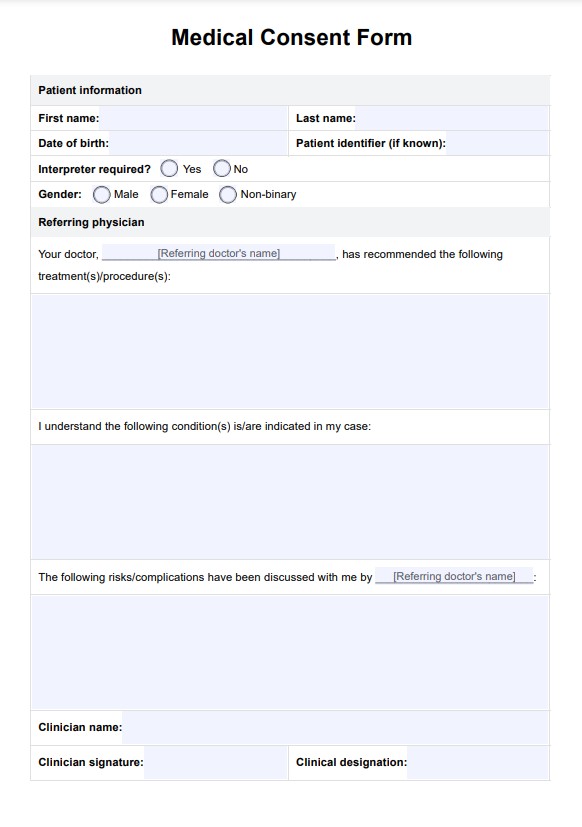Not necessarily. Your patient should only sign this form after discussing with their practitioner the risks and benefits of the procedure and any questions they have. For example, if the patient agrees to radiation treatment of their mouth but is not informed that a side effect of this treatment is impaired saliva production, even if the patient signed the form, they were not fully informed. Therefore, the practitioner could still be liable for a medical malpractice suit.

Medical Consent Form Template
An easy-to-read medical consent form in PDF format for use in simple medical or surgical procedures for adults or children.
Medical Consent Form Template Template
Commonly asked questions
In most countries and states, children under 18 cannot give informed consent themselves. As such, a competent adult or legal guardian must sign the medical consent form on their behalf.
Certain criteria need to be fulfilled for informed consent to be valid. Although these may differ depending on the country or law you reside in, the USA requires the following three aspects to be fulfilled: disclosure of information, competency of the patient (or representative where relevant), and the voluntary nature of the consent.
EHR and practice management software
Get started for free
*No credit card required
Free
$0/usd
Unlimited clients
Telehealth
1GB of storage
Client portal text
Automated billing and online payments











